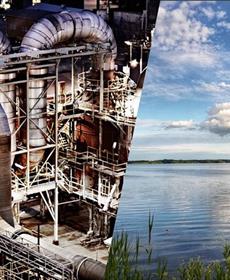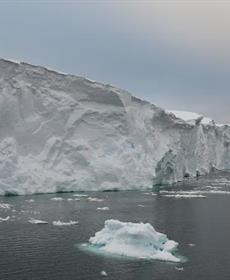|
|
|
|
 |
|
The tropical wood type ipê is popular for building exclusive wooden decks, and in North America and Europe, the demand for the material has increased sharply. Now, a study from Chalmers University of Technology, Sweden, shows that more than three-quarters of all ipê from the top producing region in Brazil could have been harvested illegally. "The study reveals where in the chain the greatest risks lie. It can be a tool to counteract illegal logging," says Caroline S.S. Franca, PhD student at Chalmers. ...more |
|
|
|
|
|
|
 |
|
Sulphuric acid is the world’s most used chemical. It is an important reagent used in many industries and it is used in the manufacture of everything from paper, pharmaceuticals and cosmetics to batteries, detergents and fertilisers. It is therefore a worldwide challenge that sulphuric acid often contains one of the most toxic substances – mercury. Researchers at Chalmers University of Technology, Sweden, have now developed a method that can reduce the levels of mercury in sulphuric acid by more than 90 per cent– even from low levels. ...more |
|
|
|
|
|
|
 |
|
By using a new method, precious metals can be efficiently recovered from thin-film solar cells. This is shown by new research from Chalmers University of Technology, Sweden. The method is also more environmentally friendly than previous methods of recycling and paves the way for more flexible and highly efficient solar cells. ...more |
|
|
|
|
|
|
 |
|
The World Cup's first temporary stadium will soon be dismantled after hosting seven matches in two weeks at Qatar 2022. ...more |
|
|
|
|
|
|
 |
|
Antarctica's so-called "doomsday glacier" -- nicknamed because of its high risk of collapse and threat to global sea level -- has the potential to rapidly retreat in the coming years, scientists say, amplifying concerns over the extreme sea level rise that would accompany its potential demise. ...more |
|
|
|
|
|
|
 |
|
Thirty years ago, a bold plan was cooked up to spread doubt and persuade the public that climate change was not a problem. The little-known meeting - between some of America's biggest industrial players and a PR genius - forged a devastatingly successful strategy that endured for years, and the consequences of which are all around us. ...more |
|
|
|
|
|
|
 |
|
From a small hill in the southern French region of Provence, you can see two suns. One has been blazing for four-and-a-half billion years and is setting. The other is being built by thousands of human minds and hands, and is — far more slowly — rising. The last of the real sun’s evening rays cast a magical glow over the other — an enormous construction site that could solve the biggest existential crisis in human history. ...more |
|
|
|
|
|
|
 |
|
The pine forests around Irpin are Oleh Bondarenko's happy place. He discovered them as a child, when his mom sent him to the area for summer camp, and he has been coming back ever since. ...more |
|
|
|
|
|
|
 |
|
Humanity has been receiving warning signs for some time that our home, the Earth, is in peril. The concentration of greenhouse gases (GHGs) is increasing and the global average temperature is rising. Thousands of species are threatened with extinction. Vast areas of land have become degraded, ten million hectares of forest are being cleared each year, and more than 800 million people are malnourished. ...more |
|
|
|
|
|
|
 |
|
An era of massive construction is currently underway, with a new area the size of Paris being built every week. The global building floor area is expected to double by 2060, which will have a massive impact on the climate. The production of building materials and construction activities are already responsible for 10% of global energy-related greenhouse gas emissions. ...more |
|
|